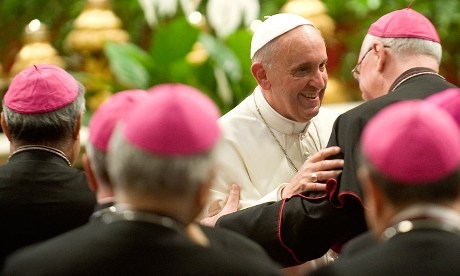There has been attention on Amoris Laetitia, Pope Francis’ 2016 apostolic exhortation that elaborates on discussions regarding marriage and the family, which took places in 2014 and 2015 within the Synod of Bishops.
But something has largely been neglected. It is the reception of the pope’s focus on synodality and its importance for the Church in the world today.
The day after Easter marked one-and-a-half years since Francis gave one of his most important speeches to explain the need for a synodal Catholic Church.
“The world in which we live, and which we are called to love and serve, even with its contradictions, demands that the Church strengthen cooperation in all areas of her mission,” the pope said on October 17, 2015.
“It is precisely this path of synodality which God expects of the Church of the third millennium,” he insisted.
Then the pope described the three levels of synodality. The first level is that of the local Church. The second is the level of ecclesiastical provinces and regions, particular councils and, in a special way, conferences of bishops. And the third level is that of the universal Church.
Francis concluded the speech by emphasizing the relevance of the synodal dimension of the Church for today’s world.
“Our gaze also extends to humanity as a whole,” he said.
“A synodal Church is like a standard lifted up among the nations (cf. Is 11:12) in a world which – while calling for participation, solidarity, and transparency in public administration – often consigns the fate of entire peoples to the grasp of small but powerful groups,” he stressed.
“As a Church which ‘journeys together’ with men and women, sharing the travails of history, let us cherish the dream that a rediscovery of the inviolable dignity of peoples and of the function of authority as service will also be able to help civil society to be built up in justice and fraternity, and thus bring about a more beautiful and humane world for coming generations,” the pope added. Continue reading
Sources
- La Croix International article by Massimo Faggioli, a Church historian, Professor of Theology and Religious Studies at Villanova University (Philadelphia).
- Image: National Catholic Reporter
